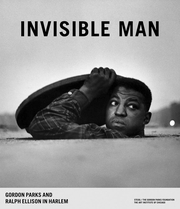| |||||||||||||||||||||||||
ARTBOOK BLOGEventsStore NewsMuseum Stores of the MonthNew Title ReleasesStaff PicksImage GalleryBooks in the MediaExcerpts & EssaysArtbook InterviewsEx LibrisAt First Sight2025 Gift GuidesFeatured Image ArchiveEvents ArchiveDATE 3/13/2026 McNally Jackson presents Oluremi C. Onabanjo in conversation with Air Afrique on 'Ideas of Africa'DATE 3/1/2026 May all your weeds be wildflowers: Staff Picks for Gardeners, 2026DATE 3/1/2026 Women's History Month Staff Picks, 2026DATE 3/1/2026 Contemporary Latinx painting in new release, 'Let Us Gather in a Flourishing Way'DATE 3/1/2026 Back in stock! ‘Kent Monkman: History is Painted by the Victors’DATE 2/26/2026 Join Artbook | D.A.P. at Show LADATE 2/25/2026 Villa Albertine presents Rémi Babinet launching 'No Ads Please'DATE 2/25/2026 The complete paintings of master and madman Francis BaconDATE 2/19/2026 Rare Hindu prints by Bengali artists during colonial ruleDATE 2/16/2026 Humble beauty in 'Chinese Patchwork'DATE 2/14/2026 Love, magic and alchemy in Hayao Miyazaki's 'Ponyo'DATE 2/11/2026 Architectural Association presents the UK launch of 'Archigram: The Magazine'DATE 2/9/2026 Lake Verea inhabits Casa Barragán—with wonder | EVENTSCORY REYNOLDS | DATE 5/20/2016Invisible Man: Gordon Parks and Ralph Ellison in Harlem at Art Institute of ChicagoOpening this weekend at the Art Institute of Chicago, Invisible Man: Gordon Parks and Ralph Ellison in Harlem reunites for the first time two little-known collaborations between the renowned photographer and writer which aimed to make the black experience visible in postwar America. Their 1948 photo essay, "Harlem Is Nowhere," produced for ’48: The Magazine of the Year was lost, and only a fragment of their 1952 “A Man Becomes Invisible” was published in Life. See video below. Invisible Man: Gordon Parks and Ralph Ellison in HarlemSteidl/The Gordon Parks Foundation/The Art Institute of Chicago |